Baré Legal has a long-standing history with our foundation built from John R Buman & Co, spanning over 35 years.
We are the parent company to ‘Consultant Paralegals’, which provides competitively priced conveyancing services with the oversight of lawyers.
We are a family-owned business with a team of lawyers and law clerks who have vast experience in delivering optimum legal services to our clients. Headed by our Principal Tim Baré, we service clients in a broad range of practice areas and in any part of Victoria.
Our staff work across various parts of Victoria, and we are challenging the concept of a traditional Law Firm by delivering services with flexibility and convenience to meet your needs.
Our Key Services
We have extensive experience in supplying practical and efficient legal services to clients in businesses and companies of all sizes. We can help in the sale or purchase, and settlement of business contracts and many more services such as:
- Confidentiality Agreements
- Debt Recovery
- Shareholders Agreements
- Business Advice
- Transfer of Trademarks
Sale and Purchases of Businesses
The sale of your business is especially important and at Baré Legal we will make this process easy as possible whilst ensuring that contracts are drafted accurately, considering matters such as:
- Transferring employees
- If there is a lease, there are responsibilities on the transferor
- Your lender may have a secured interest over the business so this needs to be managed
Our lawyers will ensure they foresee any potential issues for both the seller and the purchaser to advise appropriately.
For business purchaser’s, our team will ensure the transition is as smooth as possible so that you are protected. This is achieved with matters such as contract advice, suggesting amendments to the contract, making sure you receive required employee entitlements, the lease is adequate and whether any amendments are needed, and the goodwill of the business is protected in that the contract has adequate restraint clauses.
We have the necessary skills across different legal areas to make the sale or purchase of your business as seamless as possible. Our team have a thorough understanding of commercial law, contract law, leasing requirements and property to supply sound advice and avoid or minimise potential problems arising.
Commercial Leases including Retail Leases
Landlords and tenants require legal advice in relation to leasing issues, which is particularly relevant with the COVID pandemic. Our services include drafting leases, disclosure statements, renewal of lease, transfer of lease and advising tenants in relation to the lease.
If you are considering entering a lease for a commercial property you need to understand your obligations as a tenant, and we will make sure the terms of the lease protect your interests. On the other hand, we will draft the lease with clear terms ensuring they are clear and therefore reducing the risk of any dispute.
Our team are experienced with commercial leases and can offer services to all parties to a lease. We will endeavour to streamline all leasing arrangements with a strong focus on delivering the outcome you need.
If you or your family have involvement with the Department of Families, Fairness and Housing (DFFH), our team can provide assistance and legal advice.
The court process is inevitably stressful, and we will provide you with a lawyer who is experienced in this jurisdiction whilst maintaining care and thoughtfulness. We can aid either children or parents throughout the process ensuring it is as simple as possible and that you may continue with your life as quickly as possible without the need of DFFH involvement.
At Baré Legal you are not just a number or a transaction. It is as important to us as it is to you sometimes even more so because we are held to a higher standard of skill, care and responsibility.
Wills & Estates is important because people are living longer, accumulating more wealth, and making international connections (family, assets, businesses) that need to be considered in an estate plan.
With the ever-changing landscape of blended families and international assets, estate planning is becoming more about a big picture plan rather than a narrow-minded focus on getting a simple Will done. There are many variables at play – significant assets that do not fall into an estate, differing family dynamics, foreign beneficiaries, taxes. While Victoria does not have death taxes, there are many tax pitfalls with administering a deceased estate if it is not structured properly.
“To prepare for death is the smart way to live”
Illness and death will affect us all at some stage of our lives. Having your affairs in order, by having a valid Will and Enduring Power of Attorney, provides relief for your family, for matters to be settled with better certainty about “who gets what.” Will making is a specialised task, often requiring consideration of complex financial, legal and taxation issues.
Why is a valid Will important? While you do not have to have a Will by law, we strongly encourage every person over 18 with children or owns assets to have a legally drafted Will.
A valid Will ensures that your final wishes are lawfully noted and that your estate is distributed accordingly. You choose who is in control, who gets everything, and you can even supply instructions in relation to organ donation and funeral wishes. You should also include beloved pets!
What happens if you do not have a valid Will?
If you die without a Will (commonly known as ‘dying intestate’), your assets may not be distributed following your wishes. Your estate will automatically be distributed following relevant legislation at the time, regardless of your wishes.
Intestacy may cause confusion to those left behind and cause stress to those who need to prove their relationship to you in order to administer your estate.
Other than assets, what else can a will deal with?
Among other things, a Will deals with:
- Guardianship of minor children
- Funeral arrangements
- Organ donation
- Digital assets
It is important to note that Superannuation does not automatically form part of an Estate and cannot be distributed based on instructions in a will. You should ensure you have a binding death nomination in place.
Estates
When someone dies, their Estate (being the combination of everything they own) needs to be dealt with.
This is usually done by the Executor of the deceased’s person’s will (via a Grant of Probate). If someone dies without a will, legislation dictates who will handle managing the estate (via Letters of Administration).
What is a Grant of Probate?
A Grant of Probate is a document from the Supreme Court that certifies the last will of the deceased person. The Grant allows the executor/s to redeem the assets of the estate.
To obtain a Grant of Probate, the executor/s of the Estate must provide documents to the Court, including an affidavit (a declaration of facts) that outlines they will administer and distribute the estate in line with the Will.
What are Letters of Administration?
Letters of Administration is the equivalent to a Grant of Probate in instances where the deceased person did not have a will. The person who applies for the document is called the Administrator. This document allows the Administrator to redeem the assets of the estate.
What is a beneficiary?
A beneficiary is a person named in a will to receive something from the estate. This may be a cash gift, a gift of sentimental value or a gift of property.
How long does it take to finalise someone’s estate?
It can take upwards of one year to finalise an estate, however, often it can be much longer. If someone dies with little assets, the estate is likely to be straight-forward. If someone dies with many assets, it takes more time to redeem and distribute.
Can someone challenge a will?
Challenging a will is a lengthy and costly exercise, however, there is a class of eligible people who can mount a claim to seek the court’s intervention in the distribution of the estate. This can include someone who has been left out of the will entirely, as well as someone who has been included in the will but is set to receive an inequitable share of the estate.
We recommend you review your Will if your life circumstances change or at a minimum every 5 years!
Some life changes that would need preparing/updating a will are:
- Marriages and separations
- Birth of children or grandchildren
- Asset Changes
- Lifestyle changes – Retirement or planning for retirement
- Financial circumstances
Such as:
- Receipt of inheritance
- Sale of the family home or business
- Changes in superannuation, life insurance or investments
- Creation of a self-managed superannuation fund or trust structures
- Offshore assets
Preparing a Will can be more complex than you realise. It is one of the most important documents you will ever prepare, and you should give it the necessary attention.
Let our team of dedicated lawyers help make one of the most challenging times in your life as easy as it possibly can be.
We are well equipped to deal with all your property law and conveyancing transactions! Whether it is a residential sale or purchase, a sub-division, caveats, transfers or any other matter, our team can aid you.
As the parent company of Consultant Paralegals, our lawyers oversee the work of experienced and knowledgeable conveyancing law clerks. So, for the cost of a conveyancer, you get the knowledge and oversight of a lawyer! Click here to see further information from Consultant Paralegals on the topic of Conveyancing.
Our property lawyers can represent landowners, investors, landlords, tenants, shopping centre owners, real estate developers, builders, contractors, consultants and many more. We are available to aid you with an array of services, including but not limited to:
- Purchase and Sale of Property (residential and commercial)
- Licence Agreements
- Compulsory Acquisition (residential and commercial)
- Caveat Disputes
- Caveat Removal
- Mortgage Advice & Disputes
- Change of Ownership on Title
- Adverse Possession
- Easements
- Property development
- Owners Corporation Advice
- Matrimonial Transfers
- Subdivision of Property
Property Law often encompasses subdivisions, and our firm has experience with small- and large-scale subdivisions, subdivisions with owners corporation requirements, subdivisions with easements and covenants registered, NICO subdivisions and realignment of boundaries between neighbours.
What is subdivision?
A subdivision is the process of dividing an existing parcel of land into pieces, usually with the intention to sell the newly established parcels. Subdivisions can be large-scale developments whereby farming land is divided into hundreds of residential lots, but it can also include dividing existing parcels.
The transaction requires input from many different agencies and can be a complex and time-consuming process, with the following agencies being some that are involved:
- The local council.
- Service provider agencies (i.e., Powercor, Coliban Water etc.).
- Department of Environment, Land, Water and Planning; and
- Land Use Victoria
You will need to engage the following services to complete the process:
- Surveyor; and
- Lawyer/conveyancer
Your surveyor will draft the plan of subdivision, apply for permits and liaise with agencies on your behalf. The planning permit will dictate what works need to be completed before council will sign off on the development (Certificate of Compliance).
We (Your lawyer/conveyancer) will arrange the legal paperwork to register the new parcels. This involves liaising with your surveyor, as well as with your bank if there is a mortgage on the title.
The process can be timely. Because each parcel of land can have different zoning, easements and overlays attached, subdivisions must be completed with these restrictions in mind. The development of land can take months, and environmental delays like rainfall in winter can cause further delays.
Once all development has been completed, and the relevant agencies have signed off on the works, Council will approve the subdivision to be registered and supply the certificate of compliance. The application will be provided to Land Use Victoria and the new titles will be registered.
Registration of a subdivision takes 10-15 days, unlike a normal conveyancing transaction which is registered instantaneously.
Victims of Crime Assistance Tribunal
We have experienced lawyers to aid you should you be a victim of a violent crime.
We will ensure the correct documents are provided to the tribunal so that you have the best chance of receiving financial aid which may include loss of earnings. In that way the financial aid may help you in the recovery from a crime and be a positive outcome for an improved life.
This process may be a stressful time for you but given our expertise we will provide guidance and assistance to you to make the process as simple as possible.









